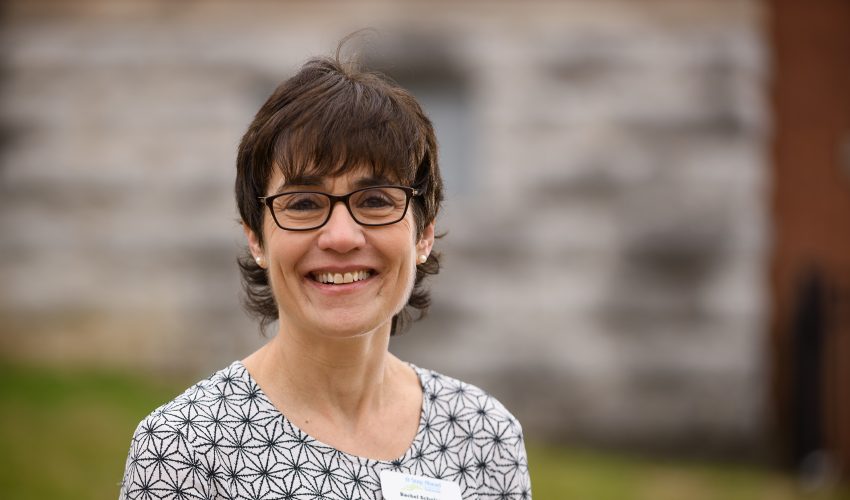“It was an accident.”
No woman wants those words to describe one of the biggest decisions of her life, but for many Tennessee women who become pregnant before they’re ready, they ring true.
Last year in Hamilton County there were 4,491 births, and 40 percent were to mothers with a high school diploma or less.
Based on recent studies, those women are expected to earn $16,134 less per year than women who earn an associate’s or bachelor’s degree.
That, in turn, can lead to poverty, a lack of proper health care, and even to another generation of women becoming mothers before they’re ready.
“When a teen gets pregnant, the ramifications are so far-reaching,” says Rachel Schulson, executive director of A Step Ahead, a Chattanooga nonprofit that helps women of all ages plan for pregnancy by covering the cost of long-acting, reversible contraceptives (LARCs).

Rachel Schulson says A Step Ahead is a concrete way to help women take control of their lives.
“Did you know a girl born to a teenage mother is 22 times more likely than her peers to become a teenage mother herself? Today, teen birth rates in America are at an all-time low, but various studies show they are still at least seven times higher than in other industrialized countries,” she says.
“No matter which statistic you look at, there is one thing we know:
“If you can help women plan their pregnancies, you can change the course of their whole lives.”

A Step Ahead helps women like Ashley Anderson, 22, achieve their goals by helping them plan for pregnancy.
Promoting prevention
It’s easy to start a conversation about unintended pregnancy with teens because its effects on young women are so startling.
But in reality, many women of all ages in Tennessee don’t know about — or don’t have access to — the birth control they need.
And even if they do, they may not be using it properly.
“Half of women who get pregnant unintentionally were on birth control but were using it incorrectly or inconsistently,” says Schulson.
“With a long-term, reversible method, a woman doesn’t become busy and forget; instead she makes a conscious decision that she feels ready to get pregnant. It’s a very different mindset.”


A Step Ahead services are totally confidential, and a 24/7 call center fields questions and schedules appointments.
A Step Ahead partners with medical facilities to make the process seamless, covers all costs not covered by other means, and offers free transportation to and from the necessary medical appointments.
All of the implant and intrauterine devices (IUDs) covered by A Step Ahead work for three, five or 10 years.
Schulson points out that other struggles in a woman’s life can affect her ability to regularly access certain kinds of birth control, which makes a long-acting solution a better fit.
“Life can be chaotic,” she says. “This is a way to get yourself a step ahead and take control.”
Planning for the future
For 22-year-old City of Chattanooga employee Ashley Anderson, life is anything but chaotic.
Still, when she graduated college last year and was about to get married, she didn’t have health insurance and wasn’t sure where to go for birth control.
Her doctor connected her with A Step Ahead and she decided on the three-year IUD.

“I’m starting my career right now, so it was just a good way for me to lay down my foundations,” says Anderson.
“I want to explore my life a little bit — I’m only 22.”
“I want to enjoy my marriage and maybe down the road have a family, and this gives me so many options. An IUD can cost around $1,000, and A Step Ahead completely covered it, which was a huge blessing.”
Anderson also points out that having a service like this in Chattanooga right now is crucial, especially for minority women who aren’t familiar with their options.


“A lot of people in the Hispanic community don’t really believe in birth control. I’m Hispanic, so I feel like I can be an advocate for my community, showing people birth control is not a bad thing,” says Anderson.
“A Step Ahead definitely gave me confidence, and now I’m able to get more involved in different things like Big Brothers Big Sisters and Head Start because I’m not worried, ‘Am I going to get pregnant?’” says Anderson.
“This program can give girls and women confidence.”
“I want to do what I can to help young girls learn what this can do for their future — it will help them have whatever future they want.”

Read more about women’s health in Tennessee.
Photos by Grant Dotson
The post Taking Control appeared first on Better Tennessee.

